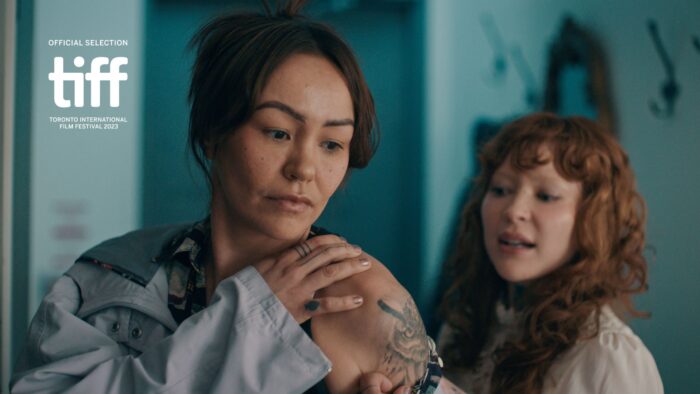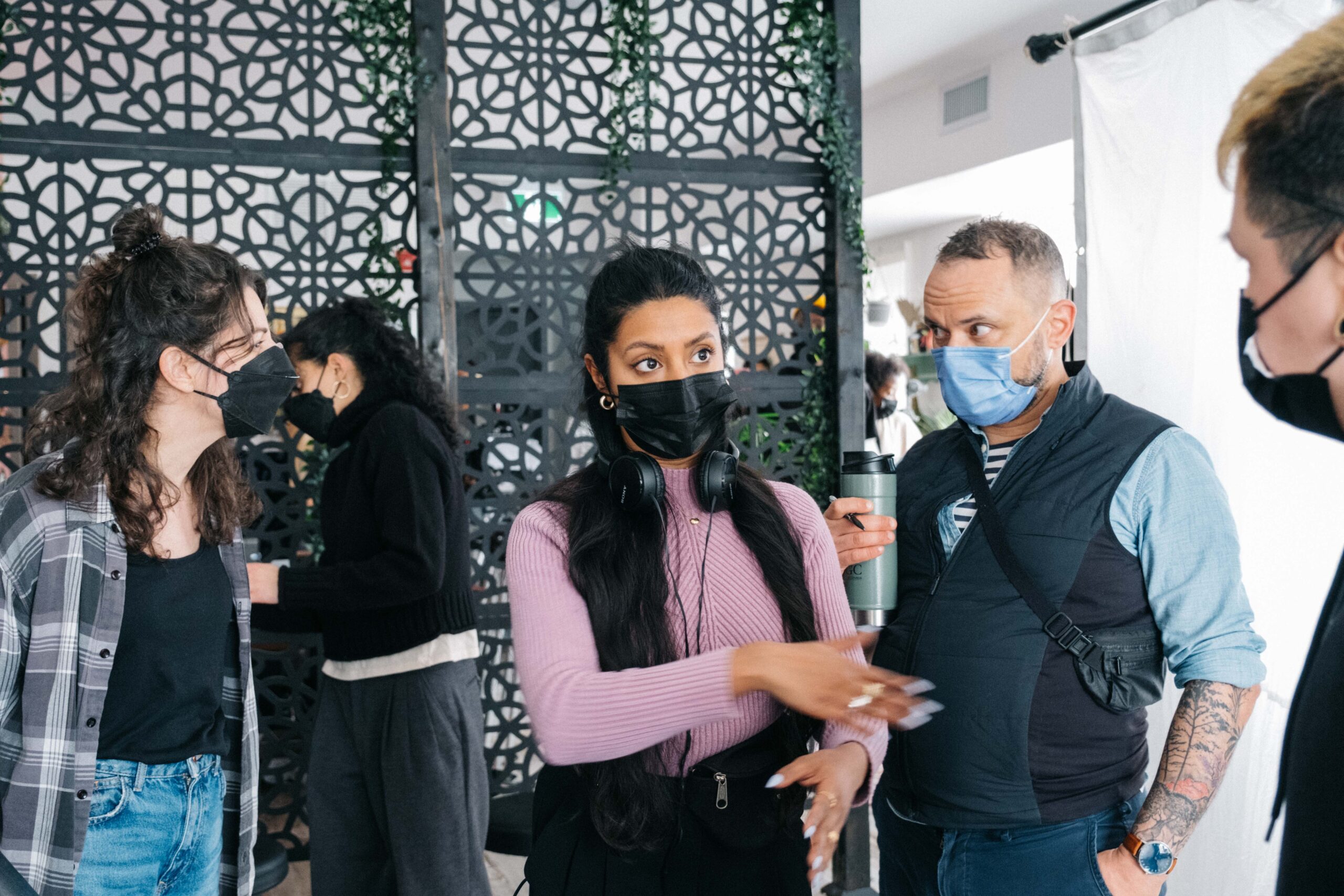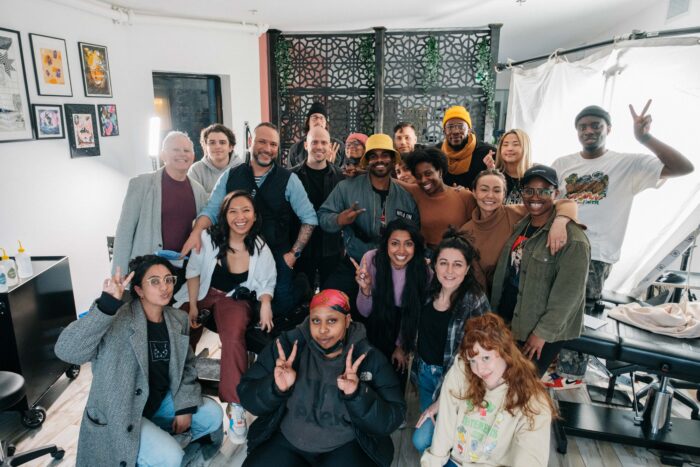When Anubha Momin, Sandy Hudson and Rodney Diverlus started their Toronto-based production company, Above The Palace together late last year, they knew they wanted to make waves—the only problem was, they weren’t sure how. “We do love a spectacle, we do love a splash,” says Momin. So when Momin, a writer and director, brought up an idea for a short film she had, the three suddenly had their big debut.
The resulting short film, Aftercare, had its premiere at this year’s Toronto International Film Festival (TIFF). In Aftercare, Kaatali (played by Mohawk Girls’ Maika Harper) has a chance encounter at a tattoo parlor with Jamie (Wong and Winchester’s Sofia Banzhaf), the now-grown child she used to take care of a decade ago. The unexpected encounter between the two is fraught with miscommunication and the long shadow of their shared past. It’s a stunning story, told in just nine minutes. And its production is also bringing up conversations about the limits of the way diversity is thought of.

For the three minds behind Above the Palace, diversity isn’t a goal so much as it is just a stated fact of any production—they wanted the film to look like the diverse city they all call home. “All three of us came of age in the city of Toronto, and the Aftercare crew and cast look like our friends and the communities that we engage with everyday,” says Diverlus. The film, which stars an Inuk woman, is written and directed by a South Asian woman and produced by a company that is two-thirds Black, is a realization of the vision of a diverse cast and crew that the three had. However, it means that Aftercare doesn’t sit neatly in any box.
“We didn’t quite hit the mark for any diversity funding or anything,” says Momin. For example, because there aren’t any South Asians on screen, Aftercare wasn’t considered a South Asian project: “There are funds that are earmarked specifically for South Asian creators, but you need to be telling a South Asian story—but I don’t really know what that means when I wrote it and directed it.”

Being too diverse to qualify for some of the diversity initiatives for underrepresented creatives points to the shallowness and strict boxes that Hollywood, and other mainstream institutions and grant models, place on people. Boxing in stories to be about a particular community—and that community only—not only means stories are less original, it also takes away opportunities for communities to work together to tell shared stories. “A script is written by a community. It might just be my name credited, but it’s built by a community the way we raise our families,” says Momin, who adds that she wants to live “outside of the definitions now.”
In the case of Aftercare, the story ended up being one that was relatable for anyone and the actors’ identities added even more depth to it. “We have two people who are not facing each other, who can’t see each other, trying to have a relationship and trying to communicate,” Hudson says. “If that’s not a metaphor for our entire world right now.”

Aside from the effect on creativity, this shallow look at diverse storytelling also leads to less underrepresented people in positions of power. Too often, movies and TV shows are called diversity wins for having on-camera representation. And that’s good and important, but on-screen representation is meaningless unless the communities being represented also have decision-making power behind the scenes and a seat at the table. Momin, Diverlus and Hudson wanted to give their crewmembers, many of whom haven’t been afforded opportunities to be in leadership positions on set, to leave the set “fuller than when they came in,” Diverlus says. That meant including veteran filmmakers as well as first-timers, and creatives from marginalized communities.
Next up, Momin and Above the Palace are working on a feature film. The three hope to take the lessons from their short with them, and continue to expand the definitions of diverse storytelling in Canada.
“There’s a superficiality to the way that we talk about diversity in film in Canada,” Momin says. “It’s like people want to see that in front of the camera and represented in the story, but they don’t think about the power behind the lens and in the rooms where people are doing the planning before you even turn on a camera.”
Aftercare premiered at this year’s Toronto International Film Festival.











